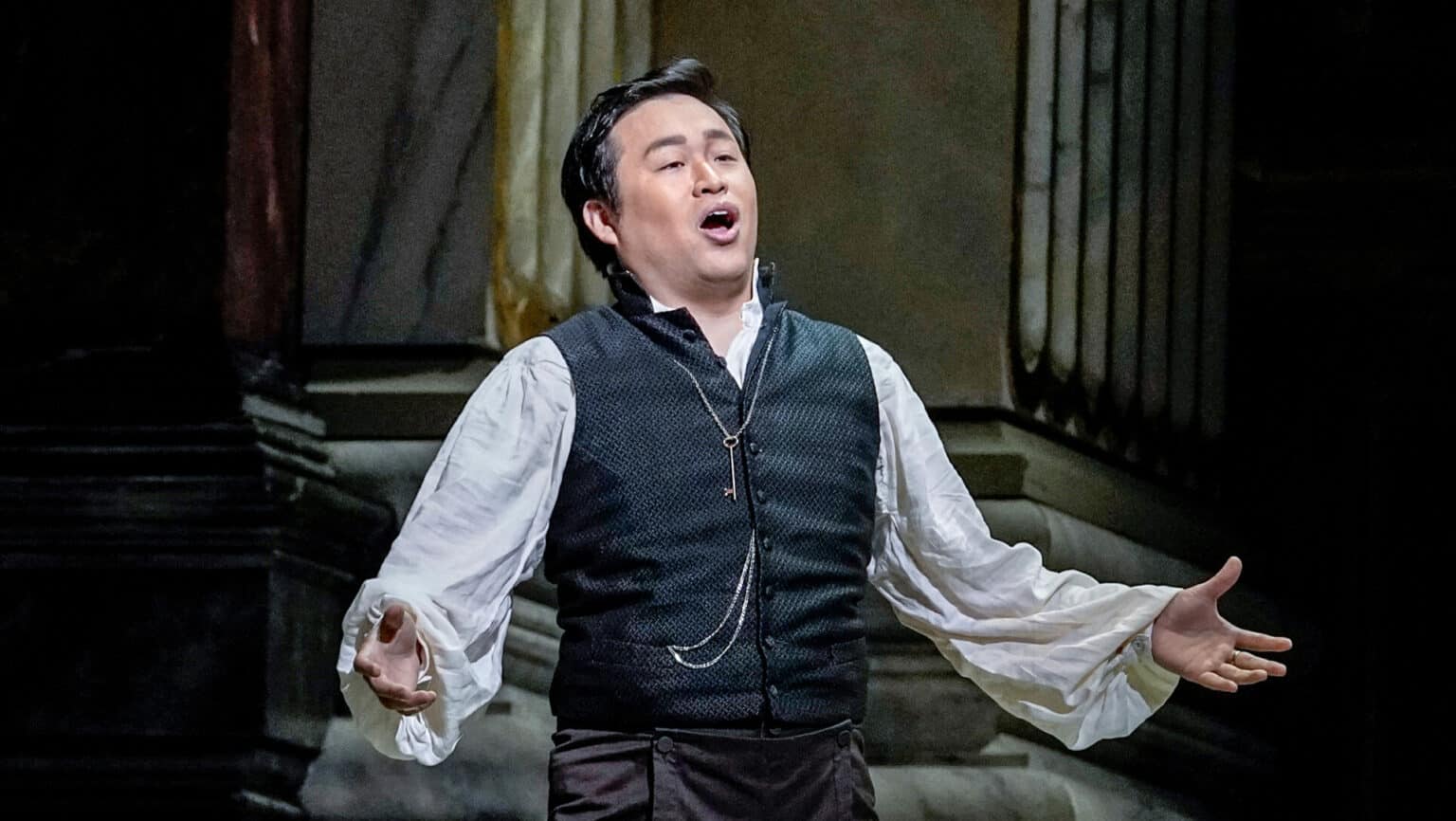Does anyone still believe Juilliard is the best?
mainCEOworld magazine has published another of those ridiculous rankings for music schools.
The list is compiled by a ‘rigorous classification process (that) takes into account global reputation and influence; specialization; admission eligibility; and academic experience as well as data from over 20,000 students and 25,000 industry professionals.’
Oh, really? Here’s their top ten:

1 Juilliard
2 Berklee, Boston
3 NEC, Boston
4 Tchaikovsky Conservatoire, Moscow
5 University of Music and Performing Arts, Vienna
6 Royal College of Music, London
7 Yale
8 Oberlin, Ohio
9 Paris Conservatoire
10 Royal Academy of Music, London
Ridiculous, right?
So, using nothing but the data supplied by contributors and readers, coming up is the Slipped Disc top ten music schools for 2019.





US-Americans love ranking everything (and, oh surprise! In whatever they rank number 1 is always US-American).
Ranking conservatories and music schools is incredibly subjective. I would rather see a list of student satisfaction (happiness with education received,
teacher, facilities, opportunities, dealing with the school admistration, etc.) per school. Still very subjective, but I think more useful.
As an alumnus of two of the listed schools, I am sure the list would be very different.
Undeniable that Juilliard offers the most and best opportunities for qualified, dedicated musical artists and it’s all about location, location, location. The name alone inspires respect and awe and certainly serves to open many doors. At least it did for me.
If Juilliard had not been placed in Lincoln Center, then it would of course be a different story. Manhattan School of Music, for one, has always been better in many ways. When I was a student, it had many superior departments, and an artistic atmosphere, rather than a dog-eat-dog competitive one, which does music a disservice. Yes, Juilliard students get more work, just by reputation alone. That’s not saying a lot. Birgitt Nilsson gave her master classes at MSM, not Juilliard. And Mannes was also terrific. Smaller schools are often better. And maybe cheaper.
An european art form that is still better taught in France, Austria, Russia, Finland, Germany, UK, and The Netherlands than in the USA. But if you want to learn the (also important and necessary) art of self promotion and self management and make contacts for the US-Market then any major school in the east coast is good.
I won’t get into the subjective and absurd horse race of ranking music schools… but that first sentence is a rather narrow and elitist view. For the good of classical/symphonic music as an art, we really should embrace the fact that it is no longer a European only art form.
No, Juilliard is very far from the best!
I would put Manhattan School, Mannes, Crane, NYU, and Eastman above Yale.
Can you bribe your way in like into Yale or Stanford?
Music schools are where we develop our artistry, and artistry is cultivated in us by our individual teachers. There are top-level teachers to be found at many different schools. Juilliard never cornered the market for the world’s greatest teachers, as evidenced by the amount of mediocrity that Juilliard regularly produces. Yes, a good education can be found there, but there’s just as good or better to be found elsewhere. In fact, the majority of successful young soloists on today’s major concert circuits are not Juilliard graduates.
Sorry, but the Colburn School is the best now.
This is a silly list. The comments claiming that “Music school X is really the best” are silly also. That said, I wonder where the Curtis Institute of Music, certainly the most exclusive high-level music school in the US, would be if one really wanted to rank the outcomes for students studying there — very high, I’d bet. I remember seeing an interesting bit of research a number of years ago which purported to show the number of graduates from these very exalted schools who were actually making their living from performing music, and even at the highest-ranked schools, it was a very low percentage. It’s a tough career, even for those who can get into schools like Juilliard and do well there.
just a few random thoughts. juilliard costs 66,000 dollars a year. just think about that. you go for four years and have spent 264K. location, yes, but in the age of youtube and internet and webcasts…. location matters less and less. the relationship with the teacher matters most. and that can be found in loads of places. i just don’t think the name ‘juilliard’ on your cv matters so much anymore. and then you graduate, in heaps of debt, move into a share way uptown, can’t afford to go to concerts anyway, start doing random gigs in new jersey until you wise up and move. it’s not like you’re going to run into fima bronfman on broadway and suddenly have a duo recital with him. there is a glut of talent and excellence now, far exceeding opportunities.
Couldn’t agree more.
“So, using nothing but the data supplied by contributors and readers, coming up is the Slipped Disc top ten music schools for 2019.”
What data? Did you post a survey or poll? Or are you using random anonymous blog comments as your data?
Norman, this is laughable.
I lived in New York City in the early Nineties and attended many graduation recitals and concerts given by Juilliard students.
I was not impressed: all very well presented and polished; very little by way of depth and insight. (I remember only one performance that had any genuine passion and commitment: the Cesar Franck sonata for violin and piano preformed at an end-of-year concert.
The audience obviously thought likewise as the two musicians got a rapturous response after the performance).
The whole experience was, barring the Franck sonata, underwhelming to say the least.
Maybe things have changed since then.
I attended the yard in the 70’s. It was truly an awful place to get a musical education. Before I had attended a university in the SUNY system, and the classes were far superior. Maybe it has improved? I hope so, since it costs about 15 times what it used to cost back then. I certainly wouldn’t recommend this overrated school to anybody. It is perplexing that people are still attracted to this school. Don’t say that you weren’t warned.
It all depends on so many variables: your instrument, your teacher, your professors, your colleagues and the student body in general for whatever years you attend. While I had an amazing time at “The ‘Yard”, just as many students couldn’t stand it. But, I will say, the general musical aptitude of most Juilliard students has, in MY experience, surpassed that of students from many other American conservatories.
Um, there is more to a music school then western-Classical music. Anyone heard Juilliard’s jazz program lately? *shudder
Yeah..they all came fro MSM to teach…hell Julliard didnt even have a classical guitar dept. until 86 they stole Sharon Isbin ..Steve Turre..Paul Sheftel..Robert Abramson ect…ect…been at both MSM was better.
Years ago, when my daughter was trying to figure out where to go, I had a talk with her piano teacher, who had worked with the kid since she was 3. I knew next to nothing about this academic culture, being from a much different realm, so I just asked questions and listened. The teacher, as I expected, was refreshingly honest: “M. can get into any of the elite institutions over here but she will run herself into the ground just to hold position in the upper-middle of the pack at Julliard, Eastman, Oberlin, etc. Or she could go overseas to a place like Glasgow and thrive free from the pain of constant, unrelenting competition.”
Her point was that the best school is not the one that wins points and grinds out famous artists, but the one that synergizes with the individual’s ability and personality. The kid went to Glasgow through her Masters and is now in a doctoral program at Huddersfield. And yes, thriving.
I am a bit puzzled by this “best” thing. The question is “best at what?”. The US schools were mostly set up, as I understand it, to produce musicians for the local orchestras (such as Curtis for the Philadelphia Orchestra; or CIM for the Cleveland Orchestra). This is similar to what European schools still do: quietly produce musicians for the local orchestra(s) who play in the local musical style.
Juilliard doesn’t really seem to do this, but it isn’t clear what it is trying to do. The US is too small a market for classical music to produce soloists and conductors in large numbers who can earn a living (in any case, producing a “star” once every few years can hardly be termed a success if the other students end up in the bin).
LOL this list made me laugh. This is what happens when non-musicians try to rank music schools. Why is Oberlin on there and not Curtis or Colburn? Berklee is second????